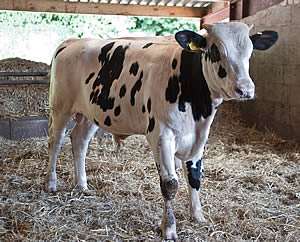Comments will be received until February 14, 2017
By Diego Flammini
Assistant Editor, North American Content
Farms.com
The Canadian Veal Association (CVA) and National Farm Animal Care Council (NFACC) are seeking public input on the draft Code of Practice.
The current Code of Practice for the care and handling of veal cattle was released in 1998. The pending revisions will focus on a variety of issues including housing, fibre, risk factors for abomasal damage, milk feeding and optimal management strategies to reduce the risk of welfare issues associated with iron deficiency anaemia.
Stakeholders, producers, consumers and others with an interest in veal cattle welfare are encouraged to participate during the comment period.

“The Canadian Veal Association is committed to continual improvement and a high standard of care for veal cattle in a manner that is attainable, practical and manageable by all producers in Canada,” Robert Wynands, veal producer, president of CVA, and Chair of the Code Development Committee, said in a release. “The Code Development Committee has worked hard since 2014 developing the draft Code. The public comment period will provide an opportunity for interested parties to review the draft code to ensure it meets reasonable requirements for all.”
Once all the comments are submitted, a 17-person Code Development Committee consisting of producers, veterinarians and others will make final recommendations.
“We hope to receive broad input from the general public, industry and other stakeholders to ensure this Code improves animal welfare and reflects the values of Canadians,” Dr. Jeffrey Rushen, a member of the Code Committee, said in the release.
Those interested can submit comments until February 14, 2017.